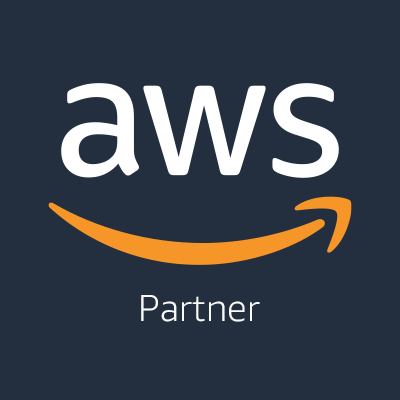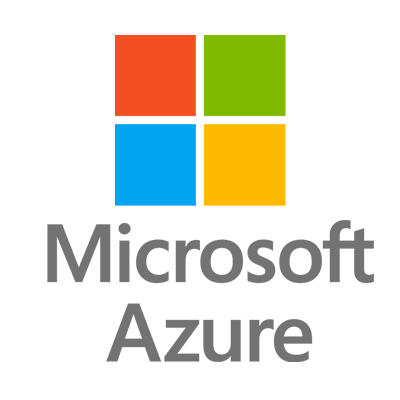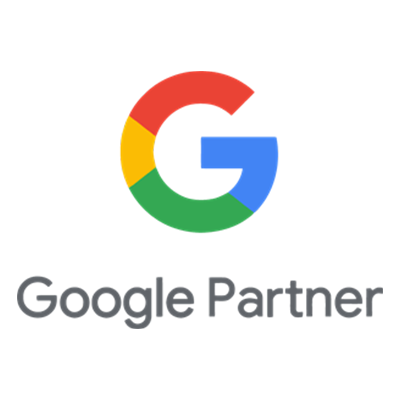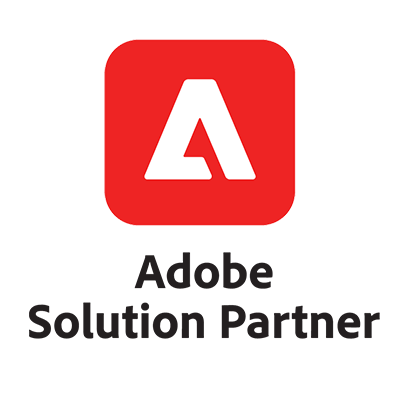Thank you!
Just a Second, One of Our Experts Will Get in Touch With You Shortly

Khan Academy has inspired many to create similar EdTech platforms. This is due to the humongous success it has witnessed over the past years in online education. In this article, you will get a roadmap for your e-learning app, guiding you through the vital steps to creating a successful educational app like Khan Academy.
E-learning has transformed education, making high-quality learning accessible to millions of students. Seeing the enormous potential of this booming sector, many agencies have stepped in to provide mobile app development services to businesses wanting to leverage online education. To build an app like Khan Academy, you need to avail services from a reliable education app development company having years of experience in this field.
We at The NineHertz can create an app like Khan Academy as we have delivered multiple similar projects in the past. Our development team has hands-on experience in crafting high-end mobile and web apps at competitive prices. Feel free to reach out to us and speak to our consultants to discuss your project idea. With that being said, enjoy the blog.
Table of Contents
ToggleKhan Academy is a non-profit educational platform that provides premium quality online resources for students around the globe free of cost. Founded in 2008 by Salman Khan who himself was a profound educator, the platform initially started off by offering video tutorials on mathematics for students and later on catered to other subjects like Economics, Geography, History, English, and more.
The primary goal of Khan Academy is to make education accessible to anyone, anywhere. Today, it offers a variety of services including instructional videos, personalized learning dashboards, and practice exercises, allowing learners to learn at their own pace. The platform’s content is designed in such a way that it supports students from elementary school through college-level topics. Moreover, the online educational platform also offers tools for parents and teachers for tracking students progress and offering targeted support.
Khan Academy has largely replaced traditional education system since it being widely used in classrooms and homes. Additionally, it has partnered with some of the renowned international institutions like NASA, the Museum of Modern Art, and the College Board providing a wholesome learning experience. The best thing about the platform is that it is multilingual, making it a product of universal acceptance.
Creating an education app like Khan Academy is a tough nut to crack. Here are the critical steps involved to create an app like Khan Academy.
Market research helps you understand your target audience and their demographics, behaviors, purchasing power, age groups, and preferences. Investing in market research can provide you with long-term results. This also includes analyzing your competitors to identify their strengths and weaknesses and formulate your strategy accordingly.
During this stage, you decide the important features to be integrated into your app including video lessons, progress tracking, personalized learning paths, and interesting quizzes. Consider these features and perform the hiring process of a mobile app development company according to the set parameters.
A great design always focuses on two things & user engagement and navigation. Always emphasize creating a layout that simplifies navigation and enhances user engagement. Create wireframes and prototypes and visualize how the actual app will function along with its overall look and feel. This helps in getting early feedback to incorporate the necessary changes accordingly.
Also Read: How to Build an App Like Coursera?
This stage is about creating premium quality educational content that aligns with your target audience. Hire subject matter experts and develop engaging video lessons interactive quizzes and exercises, and other valuable resources. You can consider using infographics and simulations to enhance user experience. Lastly, offer your content in multiple languages to expand its reach.
Select a reliable technology stack optimized for scalability, performance, and security. Build the front-end using frameworks that ensure responsive design across all devices, while ensuring the back end manages user data and content effectively. Incorporate features such as analytics to monitor user performance and generate progress reports.
Perform Testing and QA on multiple layers to identify and fix all sorts of errors, bugs, and performance bottlenecks. Implement functional testing, load testing, and user acceptance testing (UAT) to make sure the application performs flawlessly under various conditions. During beta testing, collect feedback from real users to make improvements and enhancements and optimize the app.
Finally, the stage comes when your app is available on the Google Play Store and Apple App Store for people to download. This is called app deployment. Additionally, this involves creating a detailed launch strategy that includes targeted marketing campaigns to create awareness and popularize your app. This involves using social media, and other educational platforms. Lastly, get regular feedback and identify areas of improvement to make your app stable and relevant.
Here are the main features that are the stepping stones to building a fully functional and robust education app like Khan Academy:
This particular feature enables users to sign up and create personalized profiles. This way individual progress, preferences, and achievements can be tracked over time.
Quizzes and practice problems help promote learning among students. These practice problems are modified according to the learning pace and level of expertise of the students to provide a personalized learning curve.
This feature offers a massive repository of valuable educational content including educational videos, articles, and other multimedia content. It is subject-wise segregated defining levels and stages for each.
This includes providing AI-driven personalized learning experiences adapting to the users progress skills and knowledge gaps. The overall learning experience can be a lot more targeted and efficient with this feature.
Also Read: How to Create an App Like Udemy?
Users can be notified of their progress with the help of the push notification feature. This helps in encouraging them to continue learning and informs them about the latest content or features.
Make learning more fun and enjoyable by adding rewards, badge points, or progress tracking for engaging more users. This helps users to stay motivated and get their tasks done on time.
With this feature, students can easily download content and watch it offline anytime, anywhere. This makes the whole learning experience more convenient and accessible. Further, it is helpful, especially to those having limited internet accessibility.
With dashboards, users can track their progress and overall learning performance. Secondly, it also helps instructors monitor the growth of the students. With progress tracking and analytics, it becomes very easy to track learning progress, quiz scores, and overall academic performance.
If the content is available in multiple languages, then it becomes accessible to a wider range of audience. This feature helps in broadening the platform’s reach across various cultures and regions.
This involves integrating payment gateways if the user is willing to pay an amount for premium features, certifications, and special courses. Also, a freemium model can be used to provide basic content free of cost while monetizing for advanced features.
The Tech stack used to build an e-learning app like Khan Academy can vary depending on the specific requirements of the project. Here are some of the commonly used tools and technologies:
The front end is all about building an intuitive and eye-catching user interface. For the front end, we majorly use HTML, CSS, JavaScript, and JS frameworks like Angular, React, or Vue. These technologies provide structure, interactivity, styling, and pre-built components so that the user interface can be developed efficiently and quickly. The main focus is to build a front end that is pleasing to the eyes and provides seamless navigation.
In order to handle server-side tasks and data storage, technologies like Node.js, Express.js, and Ruby on Rails are commonly used. PHP is also used in many companies for handling back-end.
Node.js is a JavaScript runtime built on Chrome’s V8 engine, whereas, Express.js is a minimal and flexible Node.js web framework that offers a sturdy set of features for building mobile and web apps. These technologies allow developers to create an app like Khan Academy that can handle data and users and at the same time offer optimum performance, scalability, and maintainability.
For hosting and scaling e-learning apps like Khan Academy, Cloud Hosting platforms such as Google Cloud, AWS, and Microsoft Azure are commonly used. With these platforms, you get a variety of services like storage, databases, hosting, and scaling. These cloud providers allow developers to easily scale their apps and make sure that it is always available to the users with their global data networking centers.
Firebase Analytics, Google Analytics, and Mixpanel are tools that are majorly used in order to track user engagement and performance. By providing valuable insights in terms of user demographics, acquisition, and behavior, these tools help developers improve their app and user experience. In terms of usage, Firebase Analytics is a free and unlimited analytics solution, while Mixpanel tracks user engagement within mobile apps. Google Analytics is the most famous web and mobile app analytics service.
Based on app complexity, the cost of developing an app like Khan Academy can vary significantly. The absence of uniformity in determining cost is due to factors like app complexity, the number of features included, the development team size, and the methodology adopted which are different in different cases.
Generally, for a simple educational app with basic features and functionality, the mobile app development cost is around $15,000 to $30,000. Some of the features that these apps contain include video streaming and subject quizzes. The usual time taken to develop basic educational apps is between 5 to 8 months. When it comes to mid-level apps with more advanced features and tech stack, the cost is around $30,000 to $50,000 and the time taken is around 8 to 12 months. In contrast, in the case of complex applications with advanced features and functionality, the cost of development starts from $50,000 and reaches up to $1,00,000. As far as the time taken is concerned, it is generally up to a year or more.
| Educational App Type | Development Time | Estimated Cost |
|---|---|---|
| Simple App | 5-8 months | $15,000 – $30,000 |
| Mid-level App | 8-12 months | $30,000 – $50,000 |
| Complex App | 1 year or more | $50,000 – $100,000 |
The educational app maintenance generally requires 15-20% of the initial development cost annually, depending on factors like app complexity and the number of users. Having said that, the ongoing expenses include marketing efforts aimed at retaining existing users and attracting new ones, which further adds to the overall maintenance budget for EdTech app solutions.
Here is a brief explanation of how the online learning platform Khan Academy works:
Provides a vast library of free educational content and resources for subjects like Math, Science, Geography, and Computer Science.
This includes interactive quizzes and practice problems to make the learning a fun thing and transform the learning curve of students.
It involves instructional videos and tutorials explaining each subject in depth. Complex and lengthy topics can be broken down into simple, easy-to-understand segments.
The Learner’s progress is systematically tracked and tailored recommendations and suggestions are provided based on that to transform the learning curve.
Students can learn according to their pace and convenience as the content is available on both mobile and web applications making it accessible anytime, anywhere.
It is related to helping teachers and making the teaching experience for them easy and breezy. This involves providing them with tools to track student performance and offer personalized support.
Making money is the end product of developing an app like Khan Academy. Here are the ways by which you can monetize your e-learning app and make real money:
Provide some free-of-cost content to your audience, while charging for premium courses and advanced features. This model helps in promoting user engagement and allowing learners to explore the actual value of the app before paying for a subscription.
Introduce a subscription model in the E-learning app, allowing users to pay a recurring fee for expanded access to resources or advanced features. Offer multiple tiers to accommodate different user groups, such as individual learners, families, or educational institutions, based on their specific needs.
Consider introducing In-App Purchases for your online education learning mobile application. This includes resources such as downloadable materials, practice sets, and certifications. This way it is easier for the users to customize their learning experiences while providing an opportunity to generate revenue and make money.
Showing various third-party advertisements on your application is another way to make money through your application. Collaborate with brands that connect to your audience, such as educational tools or learning resources. You need to make sure that the ads are placed in such a way that they do not disrupt the learning experience.
Partner with educational institutions, non-profit organizations, and businesses for sponsored content or partnerships. Ventures are always open to providing funding for a little exposure within the application so that it creates a win-win situation for both the app owner and the business.
There is nothing better than starting your education venture with an app like Khan Academy that can unlock opportunities for growth and success in a rapidly evolving marketplace. The market always focuses on creating accessible and effective online learning solutions and an education app development company helps you achieve that.
It provides innovative technology and a user-centric approach to build an app like Khan Academy that meets the diverse needs of learners on one hand and fosters engagement and retention on the other. Embarking on a journey of creating an educational application like Khan Academy, you and your app development partner must stay responsive and adaptable to user feedback, the latest technologies, trends, and tools.
In the end, investing in an app like Khan Academy is a decision that you will never regret as it can position your business to contribute to the future of education. With iOS App Development and Android App Development, we at The NineHertz can make learning accessible for everyone, everywhere. So, what are you waiting for, just call us and get it started.
Yes, Khan Academy is a free learning online platform available for class 1-12 students. It contains videos, exercises, and tests for math, science, and more subjects.
The time taken to develop an app like Khan Academy typically ranges from 5-8 months, depending on the features, functionality, and the development team’s size and location. Some additional time may also be required post-launch for ongoing iterations and updates to enhance user experience.
When it comes to building an education app with basic functionality, the cost bracket lies between $10,000 and $25,000. In the case of a more advanced app with personalized features and extensive content, the cost ranges from $25,000 to $50,000.
Some of the primary features contained by an education app include online live sessions, a repository for class recordings, a video player, online exams, online results, events, and a chat box.
We offer uninterrupted technical help and support services to our clients at all hours of the day. Thus, by promptly fixing issues and addressing concerns we have managed to retain 100% of our customer base making us the top choice in the EdTech industry. Therefore, rest assured of getting quality-driven services regardless of what the time zone is.
My name is Hemendra Singh. I am a Director and Co-founder of The NineHertz, IT Consulting Company. I am having a keen interest in the latest trends and technologies that are emerging in different domains. Being an entrepreneur in the field of the IT sector, it becomes my responsibility to aid my audience with the knowledge of the latest trends in the market.
Get a precise estimation for the time and cost of your project idea. No surprises, just clarity.
Discover how AI implementation can 10X your business revenue. Learn the secrets to scalable success!
Find out why 90% of business ideas fail after launch and how you can be among the successful 10%.





Just a Second, One of Our Experts Will Get in Touch With You Shortly
Take a Step forward to Turn Your Idea into Profit Making App





